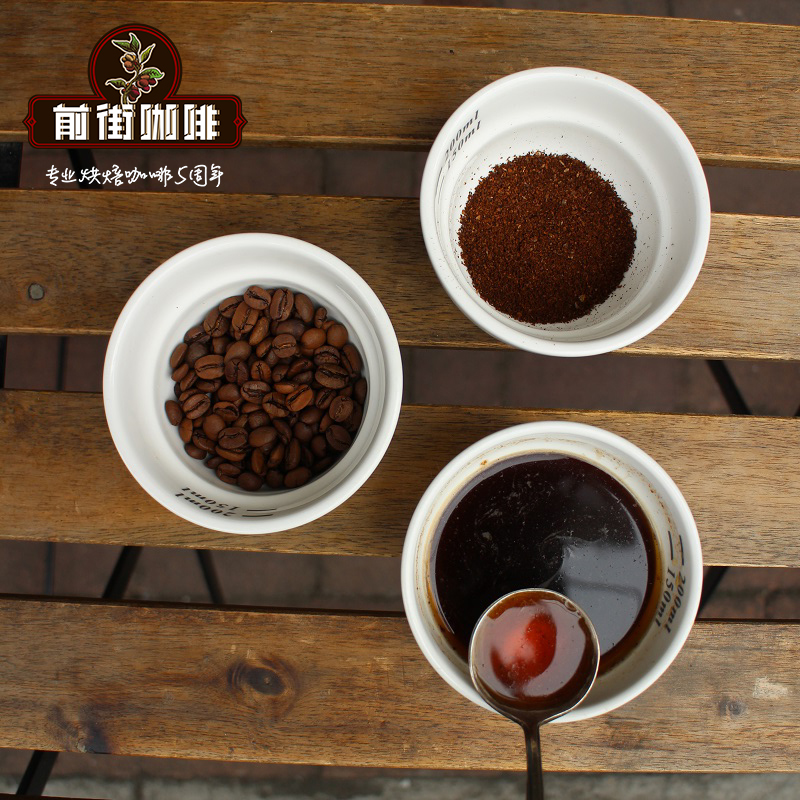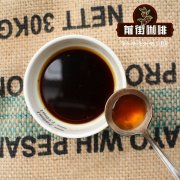How is the acidity of rosy summer coffee in Yega Sheffield Village? Who is the best Rose Summer Manor?

Professional coffee knowledge exchange More coffee bean information Please pay attention to coffee workshop (Weixin Official Accounts cafe_style)
Before meeting Willem Boot, owner of La Mula in Panama, Adam Overton had only a vague dream of buying a farm in Ethiopia to grow the best coffee in the world.
Why Ethiopia? Because Ethiopia is said to be the home of roses, roses seeds were brought from the depths of the native forest to Panama in the last century. It was only in the early 2000s that it became the most amazing coffee in the world. His wife Rachel Samuel is Ethiopian.
Adam, who has no experience growing coffee at all, is a documentary film director by profession and Rachel, a professional photographer, were commissioned to shoot a coffee documentary in Ethiopia in 2007. From then on, I fell in love with coffee and wanted to buy coffee garden wholeheartedly.
In 2009, they met Willem Boot, three years after Willem Boot bought La Mula, a Panamanian estate that grows roses. To learn, the couple flew from Ethiopia to Panama to learn from Willem Boot at Donkey Farm. At the time, no one knew that La Mula, a small estate, would shine in the Best Panama competition five years later.
But Willem Boot was already known for its Ethiopian origins in search of summer. Since Rose appeared in Best Panama in 2004, he has been hoping to find the origin of Rose in Ethiopia's vast virgin forest, and organized several exploration trips to explore unexplored places. Although the results were limited, he never gave up.
Why is it so important to go back to Ethiopia and find out where the rose came from?
For Willem Boot, finding coffee that tastes as good as Panama's rose means finding coffee varieties that combine disease resistance and superior flavor under the threat of global warming, which is of unspeakable importance to the future survival of coffee.
Learning from Willem Boot, Adam and his wife's dream was a major turning point, and their determination to build their own summer house was strengthened. Since they live in Addis Ababa, the capital of Ethiopia, they initially wanted to find a place closer to them, which was easier to find and convenient for transportation. But to meet the conditions for growing roses, considering altitude, microclimate, and all the other conditions, I unknowingly searched farther and farther until I finally came to the most remote southwest of Ethiopia, bordering the Sudanese border.
This area is Bench-Maji, a two-day drive from Addis, and there are several villages called "Rose Summer" nearby, which is also the most likely place for the legendary Rose Summer. Bench-Maji was isolated from the rest of the world, and outsiders rarely entered until roads were opened a few years ago. The local Meanit aborigines have their own language. To all outsiders, they call it China!
Adam and his wife, accompanied by local people, climbed into the mountains and immediately fell in love with the land-1900 to 2100 meters above sea level, abundant rainfall, suitable temperature patterns, rich virgin forest soil, long-standing coffee growing ecology, and ancient coffee trees. After three years of searching, he finally found a foothold in this dreamland. They have a simple name: Gesha Village Coffee Estate.
When the farm broke ground in October 2011, Willem Boot, their consultant, flew to the estate and found it more like a camping prairie than a thriving farm. In order to guard against lions, watchtowers were built on the farm to give early warning. To explore the forest, one must be armed with AK-47 rifles, guard against fierce wildlife, and be accompanied by indigenous people with spears.
Almost at the same time, however, there was a breakthrough in the search for suitable summer varieties. Willem Boot and Adam found wild roses very similar to Panama roses in a virgin forest not far from the estate. No matter the shape of cherries and branches, they were comparable. The growing environment was deeply covered by shade trees, thousands of coffee bushes were growing, coffee flowers were in full bloom, and the air was filled with incredible jasmine fragrance. Willem Boot recalled that it was like "being in heaven"!
The forest they discovered, called the Gori Gesha Wild Coffee Forest, is just 20 kilometers from the estate and Adam believes it is the same forest from which the famous Panamanian rose was harvested in 1930. Willem Boot also believes that these trees are very similar to the summer roses he planted in La Mula, which have green and brass young leaves. In February 2012, Willem Boot returned to the estate and the estate's summer rose variety was finally finalized.
But for Willem Boot, morphological similarity alone was not enough; he needed more precise scientific evidence: genetics. He called Dr. Sarada Krishnan of the Denver Botanical Gardens to genetically compare coffee beans from the Rosedale Forest with Rosedale extracts from Panama. Krishnan spent nine months comparing the two roses and concluded that the genetic similarities were extremely high.
Adam's "Guixia Village Estate" now has 300 hectares, and 50 hectares will be added next year. The planting density was maintained at only 2000 trees per square hectare, and 30,000 shade trees were planted in the first three years of the estate, not only to improve the growth of coffee trees, but also to maintain rich biodiversity, allowing native species to grow freely in it. Treatment methods include washing and sun, washing is to use environmental Penagos washing machine to treat.
In 2015, the first harvest was made in the village of Guixia in Ethiopia. With anxiety, they took the first batch of processed raw beans to Willem Boot Cup for testing. The best cup Willem Boot has tried all year!
In 1931, a rose was taken away from Ethiopia, blossomed in a foreign land, and became famous all over the world. Eighty-five years later, a documentary filmmaker with a dream rediscovers the hometown of this summer, and the world will have a chance to know the summer of Ethiopia.
Important Notice :
前街咖啡 FrontStreet Coffee has moved to new addredd:
FrontStreet Coffee Address: 315,Donghua East Road,GuangZhou
Tel:020 38364473
- Prev

Is the coffee good in Guoxia Village? Is there any difference between Rose Xia Village and Rose Summer? The award-winning situation of Guoxia Village Manor
Professional coffee knowledge exchange more coffee bean information please follow the coffee workshop (Wechat official account cafe_style) Rosa Village Manor 2017 international bidding winning situation only a few estates in the world can hold their own bids, the most famous such as Jadeite of Panama, Incht of Guatemala, Daterra of Brazil, Mieri of Nicaragua
- Next

Yega Chuefei Red Cherry Project Coffee Bean Story hand-washed Yega Chuefei Sun Red Cherry Coffee Flavor
Professional coffee knowledge exchange more coffee bean information please follow the coffee workshop (Wechat official account cafe_style) what is the red cherry project recently in many coffee menu will see the xx red cherry project xx red cherry sun, xx red cherry washing and so on often guests will ask me xx red cherry
Related
- Does Rose Summer choose Blue, Green or Red? Detailed explanation of Rose Summer Coffee plots and Classification in Panamanian Jade Manor
- What is the difference between the origin, producing area, processing plant, cooperative and manor of coffee beans?
- How fine does the espresso powder fit? how to grind the espresso?
- Sca coffee roasting degree color card coffee roasting degree 8 roasting color values what do you mean?
- The practice of lattes: how to make lattes at home
- Introduction to Indonesian Fine Coffee beans-- Java Coffee producing area of Indonesian Arabica Coffee
- How much will the flavor of light and medium roasted rose summer be expressed? What baking level is rose summer suitable for?
- Introduction to the characteristics of washing, sun-drying or wet-planing coffee commonly used in Mantenin, Indonesia
- Price characteristics of Arabica Coffee Bean Starbucks introduction to Manning Coffee Bean Taste producing area Variety Manor
- What is the authentic Yega flavor? What are the flavor characteristics of the really excellent Yejasuffi coffee beans?

